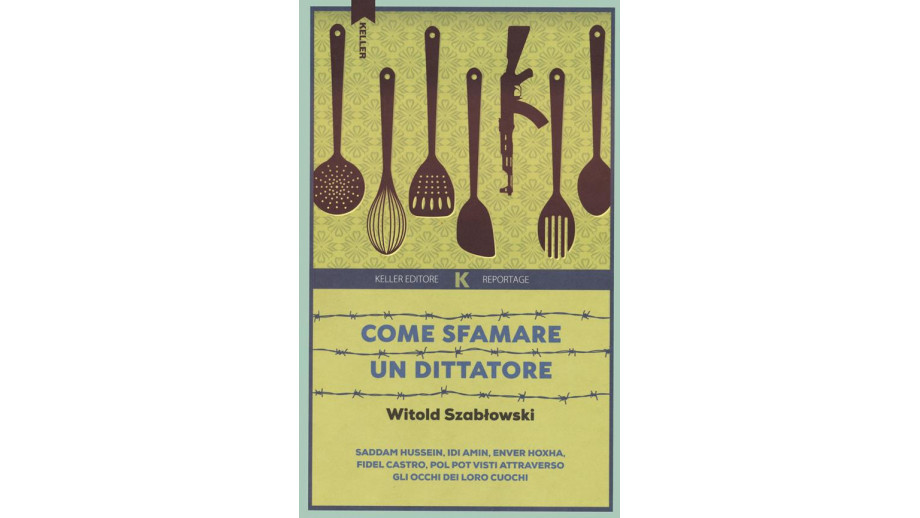News

Witold Szabłowski’s “Jak nakarmić dyktatora” in Italian with the support of the Book Institute
The translation of Witold Szabłowski's book Jak nakarmić dyktatora (“How to Feed a Dictator”) has been published in Italy. The publication of the book translated by Marzena Borejczuk was supported by the Book Institute as part of the ©POLAND Translation Programme.
In Italian, the title of Szabłowski's reportage reads Come sfamare un dittatore. The book was published by the Italian publishing house Keller Editore.
How to Feed a Dictator is one of the most translated Polish books of recent years. Witold Szabłowski's report is based on a great opening idea - it describes dictators (and dictatorships) through their eating habits. The author talked to chefs working for five tyrants - Saddam Hussein, Pol Pot, Idi Amin, Enver Hoxha, and Fidel Castro - and found out directly from first-hand experience what these rulers were like, what they liked best and what special requirements they had when it came to food. Or could the chefs have influenced the ruling, following the proverbial principle "the way to a man's heart is through his stomach"?
Witold Szabłowski is currently one of the most popular Polish writers translated into foreign languages. Dancing Bears and How to Feed a Dictator have so far been translated into French, Japanese, German, Russian, Italian, Spanish, and English, among other languages - also thanks to the support received from the ©POLAND Translation Programme run by the Book Institute. In the United States, both books were published by the prestigious Penguin Random House publishing house. In addition, Szabłowski has sold the rights to a TV series adaptation of How to Feed a Dictator to the production company Free Assiociations, owned by actor Channing Tatum.
***
The ©Poland Translation Programme is one of the Book Institute's flagship programmes. Its aim is to promote Polish literature around the world by providing financial support for the publication of Polish books in translation into foreign languages. Foreign publishers may use the funding grant to finance part of the work's publication costs, including, among other things, the translation of the work from Polish into another language, the purchase of copyright licences, and the printing of the book. In 2023 alone, we have subsidised 229 foreign editions of Polish books to be published by publishing houses from 46 countries, to which we have allocated almost PLN 5 million. In all editions of the programme, we have already subsidised a total of more than 3,000 translations of Polish books into foreign languages.